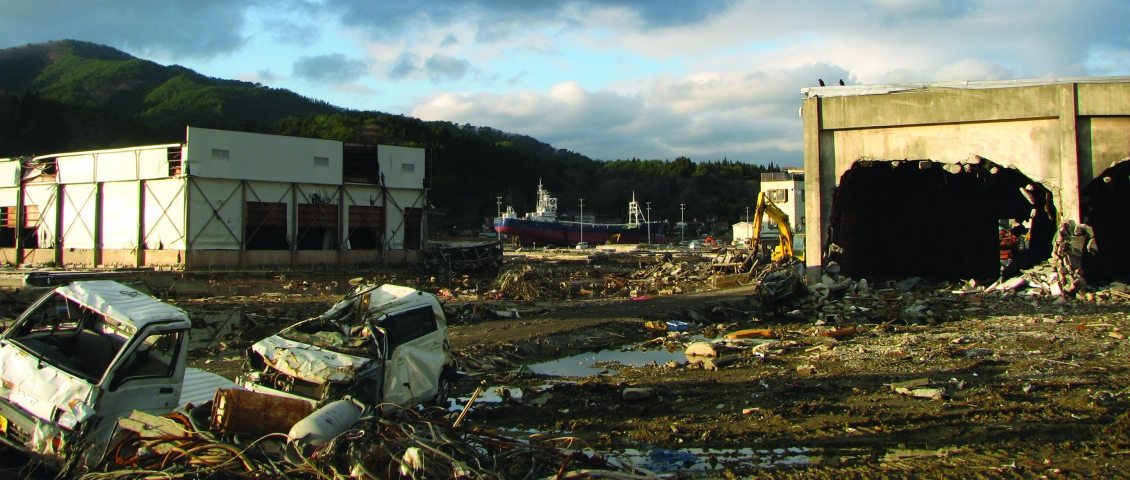February 4 – April 1, 2012
Media/Retail Space
GOD LOVES JAPAN is a time-sensitive installation memorializing the earthquake/tsunami disaster that took place in eastern Japan on March 11th, 2011. The installation intends to raise awareness of Japan’s long-term recovery needs and encourages viewers to re-evaluate the meaning of love and empathy in our time. This installation includes three works:
- A neon sign work, All you need is love Maybe;
- A deconstructed video recording sculpture Everybody Loves You 2 (ELV2);
- and Yes, an homage to Yoko Ono’s 1966 work CEILING PAINTING (YES PAINTING).
The title of the exhibition is Takeya’s personal response to Douglas Coupland’s 2001 book GOD Hates Japan, the story of characters lost in a malaise that swept Japanese culture after the collapse of their economy in the late 1980’s and early 1990’s. In addition it illustrates the way some of these characters lived in the shadow of the 1995 sarin-gas assault on Tokyo’s subway system by Aum Shinrikyo, a religious death cult. On March 11th, 2011, an earthquake/tsunami disaster devastated Japan’s east coast. So perhaps Coupland is right, that God does indeed hate Japan and that the recent disaster merely reinforces his point that human (and divine?) indifference reigns. GOD LOVES JAPAN aims to make the incident relevant by being a metaphor for how values that are shrugged away today with cynicism, such as ‘love’ and ‘care’, can be rebuilt and strengthened over time. By commemorating the one-year anniversary of the disaster in Japan, the exhibition aims to call attention to the still-ongoing recovery, hoping to strengthen international solidarity and to build bridges for future partnerships between peoples all over the world. The installation includes signage with ‘All you need is love Maybe’, an ambiguous statement in red and white neon, with ‘All you need is love’ flashing in red neon, and ‘Maybe’ in unblinking white. This work seeks to question our responses the statement, asserting the Heisenberg Principle, that uncertainty is the only certainty. These words invite the viewer to consider their personal responses to Everybody Loves You2 (ELY2), an interactive sculpture and video-installation composed of non-functioning debris collected by the artist after the 2011 tsunami/earthquake on Japan’s east coast.Functioning as a hybrid video-making booth and confessional, viewers are encouraged to interact with the installation and be recorded saying the phrase “I love you,” a phrase that has become a cliché through public discourse and mythic associations. Through this simulation of a stereotypical behaviour, viewers actively construct and deconstruct their aesthetic experience of everyday reality. The words “I love you” become a declaration of confession to a subject who is absent, questioning the notions of authenticity and reality. In addition, ELY2 is inspired by trends in internet communication (eg. Facebook, MySpace), and the Japanese youth-culture phenomenon of the print-club photo-booth. It transforms our physical experience with these media and questions replacement of spatial and social interaction with I.T. culture. This work in its earliest “functioning” form first premiered during Toronto’s Nuit Blanche 2007, curated by Michelle Jacques and exhibited at Xpace Cultural Centre in 2010. Love survives. ELY2 evolves as a result of this interaction and integration, developing a relationship over time with viewers and the environment. By situating the dysfunctional, or deconstructed work as a victim in the recent earthquake/tsunami disaster in Japan, the sculptural structure of ELV2 will appear as though love is dead (and GOD Hates Japan). However the audience will hear the voices of people whispering, “ I love you,” in a video loop, remnants of love merely being simulated. Finally, viewers will be guided towards a hole located on the elevated area of the installation. Upon looking into the hole viewers will see a little sign saying “Yes” (YES). The work is surrounded by photographs of Takeya’s Facebook friends that are currently volunteering in the disaster areas of Japan. Yes suggests optimism and the audience peeping downward may appear to be humanitarian rescuers. The work is homage to Yoko Ono’s 1966 installation that inspired John Lennon, and perhaps what lead him to his idealistic hit song, All You Need Is Love, through her influence.
Presented by the Museum of Contemporary Canadian Art
Opening Reception
Saturday February 4, 2 – 5 pm




